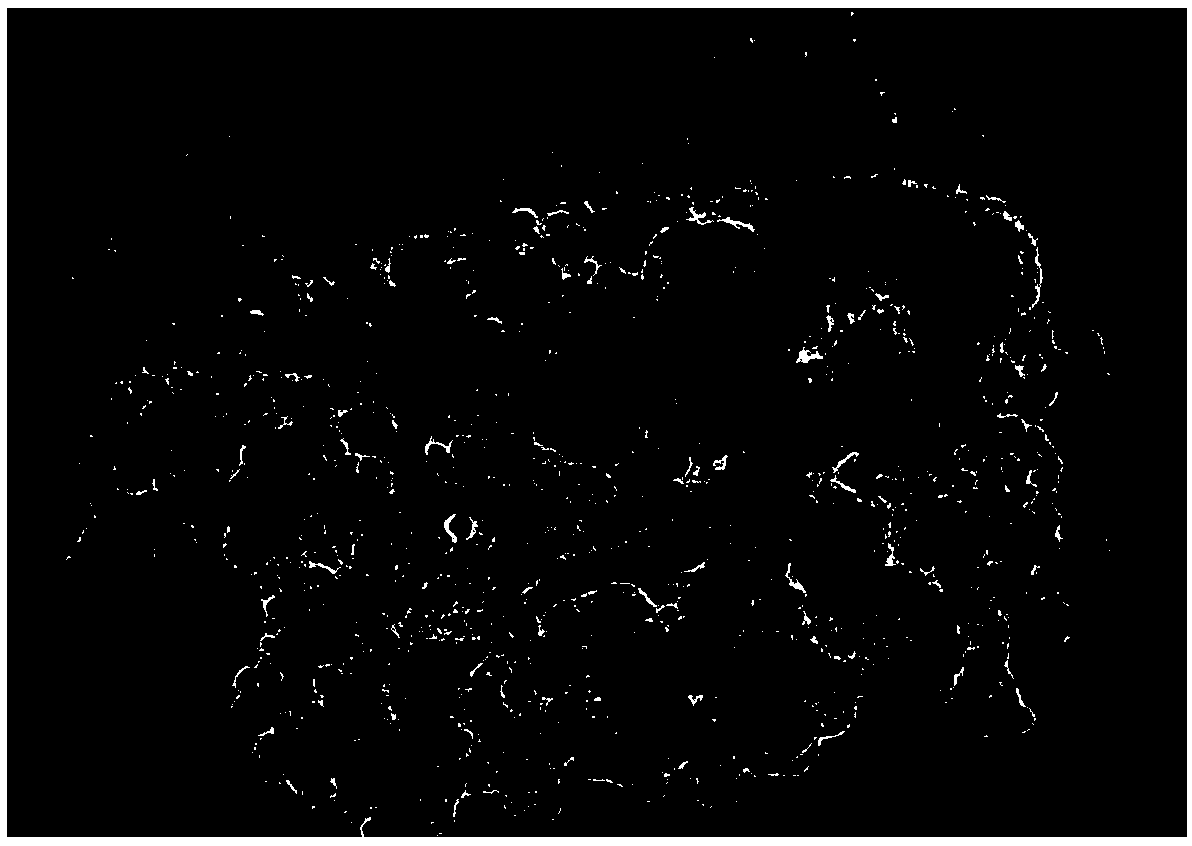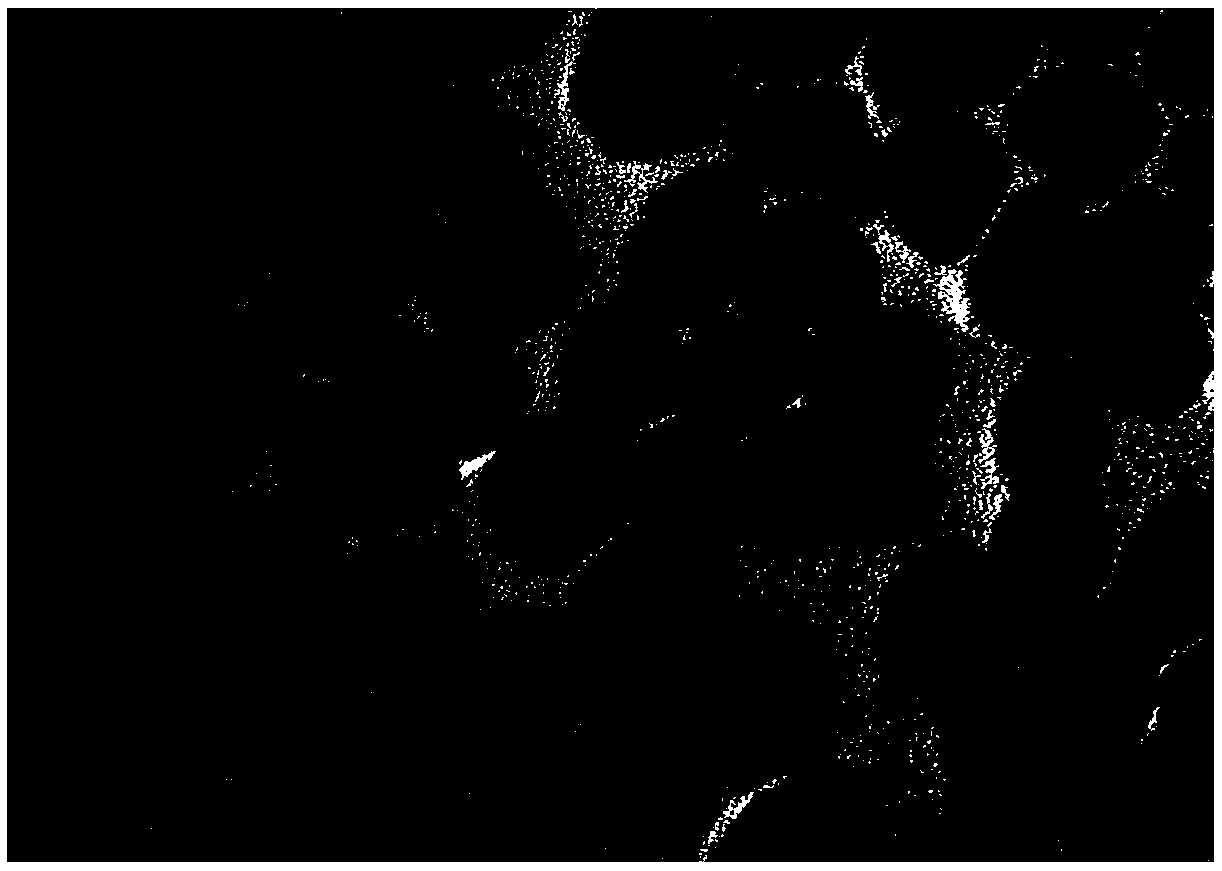High-performance carbon-supported PdPtPb nanosheet catalyst for fuel cells and preparation method thereof
A fuel cell and catalyst technology, applied in the fields of nanotechnology, battery electrodes, nanotechnology, etc. for materials and surface science, can solve the problems of high price and low reserves, and achieve low equipment requirements, low cost, and stable electrochemistry. performance effect
- Summary
- Abstract
- Description
- Claims
- Application Information
AI Technical Summary
Problems solved by technology
Method used
Image
Examples
preparation example Construction
[0035] A method for preparing a high-performance carbon-supported PdPtPb nanosheet catalyst for fuel cells, comprising the steps of:
[0036] (1) According to Pd x Pt y Pb z Nanosheets, where x, y, and z represent the molar percentages of the corresponding elements, x+y+z=1, 0.3≤x≤0.5, 0≤y≤0.2, 0.25≤z≤0.75, 0≤y:x≤ 0.4, 0.5≤z: (x+y)≤1.5 ratio Weigh 4.65~7.75mg of palladium acetylacetonate, 0~4mg of platinum acetylacetonate, 5.15~15.45mg of lead acetylacetonate, 18~36mg of ascorbic acid and 5.5~70mg of carbon The carrier is put into a 25ml polytetrafluoroethylene container, and 10ml of 1-octadecene and oleylamine are added as solvents at the same time, and ultrasonically dispersed for 1 to 2 hours to obtain a uniformly dispersed reaction solution; the carbon carrier includes XC-72, Ketjen black, graphene, ordered mesoporous carbon.
[0037] (2) Put the uniformly dispersed reaction solution into a reaction kettle, put the reaction kettle into a heating furnace, control the te...
Embodiment 1
[0049] Preparation of carbon-supported PdPb@C nanosheets:
[0050] (1) Take a certain amount of palladium acetylacetonate 7.75mg, lead acetylacetonate 8mg, ascorbic acid 36mg, XC-72 18mg and put it into a 25ml polytetrafluoroethylene container, add 1-octadecene and oleylamine of 5ml simultaneously as Solvent, ultrasonic dispersion for 1 hour to obtain a uniformly dispersed reaction solution;
[0051] (2) Put the uniformly dispersed reaction solution into a reaction kettle, put the reaction kettle into a heating furnace, control the temperature to 180°C, and the reaction time is 6 hours to obtain a carbon-supported PdPb@C nanosheet suspension solution;
[0052] (3) Cool the suspension solution to room temperature, add cyclohexane, then add ethanol, centrifuge and wash with ethanol several times, and then disperse it in the ethanol solution.
[0053] (4) Add a small amount of glacial acetic acid to the obtained solution, and centrifuge after ultrasonication. After washing with...
Embodiment 2
[0061] Preparation of carbon-supported PdPtPb@C nanosheets:
[0062] (1) Weigh a certain amount of palladium acetylacetonate 6.97mg, platinum acetylacetonate 1mg, lead acetylacetonate 8mg, ascorbic acid 36mg, Ketjen black 18mg and put them into a 25ml polytetrafluoroethylene container, and add 5ml of 1-18 Alkene and oleylamine were used as solvents, ultrasonically dispersed for 1 hour, and a uniformly dispersed reaction solution was obtained;
[0063] (2) Put the uniformly dispersed reaction solution into a reaction kettle, put the reaction kettle into a heating furnace, control the temperature to 180°C, and the reaction time is 6 hours to obtain a suspension solution of carbon-supported PdPtPb@ketjen black nanosheets;
[0064] (3) Cool the suspension solution to room temperature, add cyclohexane, then add ethanol, centrifuge and wash with ethanol several times, and then disperse it in the ethanol solution.
[0065] (4) Add a small amount of glacial acetic acid to the obtaine...
PUM
| Property | Measurement | Unit |
|---|---|---|
| Horizontal size | aaaaa | aaaaa |
Abstract
Description
Claims
Application Information
 Login to View More
Login to View More - R&D Engineer
- R&D Manager
- IP Professional
- Industry Leading Data Capabilities
- Powerful AI technology
- Patent DNA Extraction
Browse by: Latest US Patents, China's latest patents, Technical Efficacy Thesaurus, Application Domain, Technology Topic, Popular Technical Reports.
© 2024 PatSnap. All rights reserved.Legal|Privacy policy|Modern Slavery Act Transparency Statement|Sitemap|About US| Contact US: help@patsnap.com










